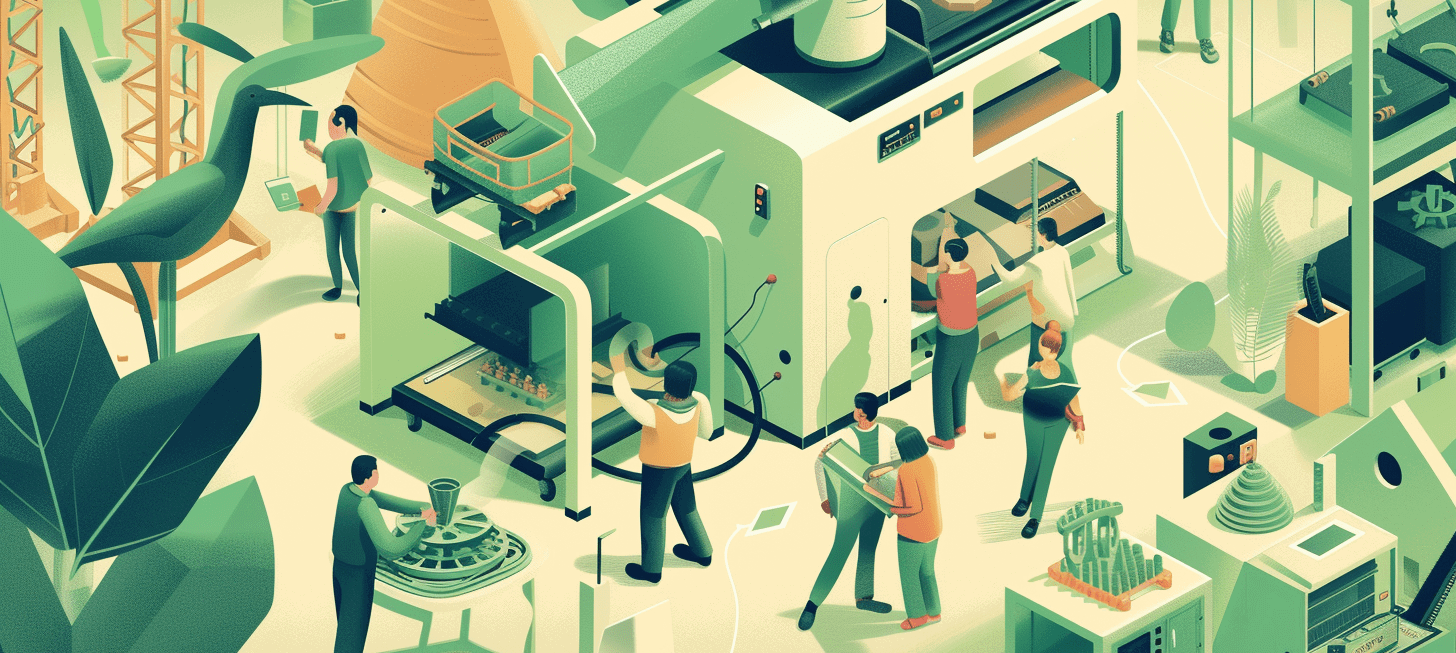3D Printing And Sustainable Manufacturing

The 3D printing industry once primarily focused on rapid prototyping, has now expanded into numerous sectors, emphasizing eco-friendly practices. This article explores the impact of 3D printing on sustainability and different approaches to enhance this technology's eco-responsibility.
Minimized Waste Through Precise Manufacturing:
3D printing reduces material waste by using only the necessary amount of material for the final product, unlike traditional subtractive manufacturing methods that involve cutting away large portions of material. This aligns with sustainable manufacturing principles.
Use of Eco-Friendly Materials:
The 3D printing industry is increasingly using biodegradable and recycled materials. Polylactic acid, a bioplastic made from renewable sources such as cornstarch, is widely used for eco-friendly 3D printing. Additionally, companies are exploring the use of recycled plastics to decrease new plastic production and support a circular economy. For instance, some firms utilize recycled PET bottles as a source for 3D printing filaments.
Energy Efficiency and Reduced Carbon Footprint:
3D printing may offer a more efficient use of energy compared to traditional manufacturing techniques, particularly when creating intricate or customized products. The localized production through 3D printing minimizes transportation requirements and the resulting carbon emissions. Additionally, companies are incorporating renewable energy sources into their 3D printing processes, contributing to a reduction in overall carbon footprint.
Our Questions to You..
As the 3D printing industry continues to develop towards sustainability, it raises questions about its future implications. How will these environmentally friendly advancements in 3D printing influence manufacturing and consumption? In what ways can we enhance sustainable practices within this rapidly expanding field? If you are interested in staying updated on the latest trends in 3D printing, particularly regarding electronics, and wish to discover how these developments can advantage your business or project, feel free to reach out to us.
Related Articles

Plug And Play Adapter To Use BD67173NUX Chip On Arduino Breadboard

Reflecting On Electronica 2024: Experiences, Insights, And New Opportunities





